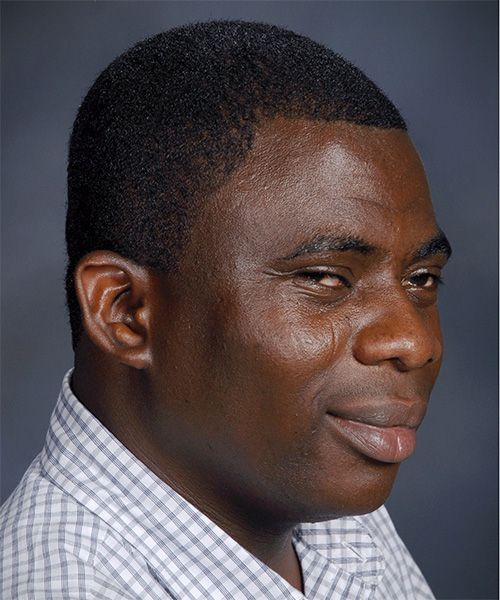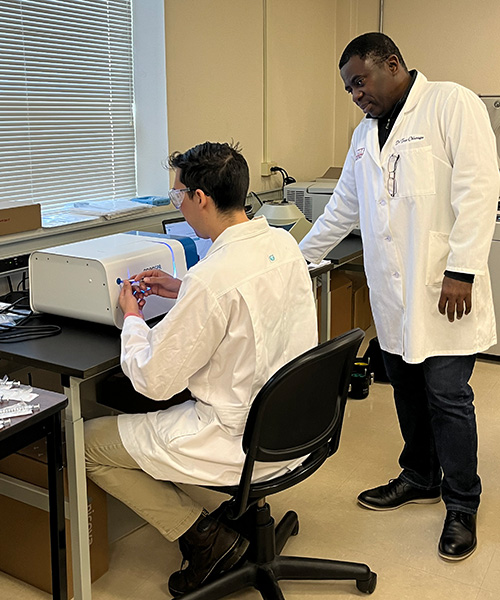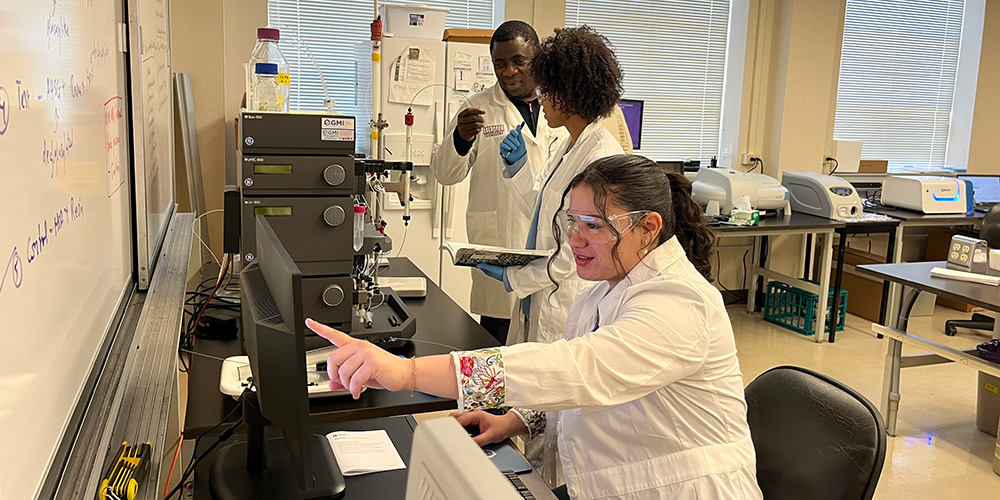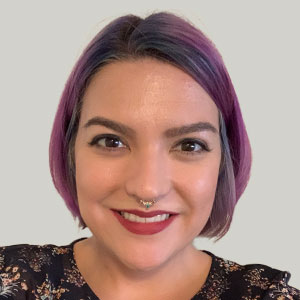Touching the future from the bench
Odutayo “Tayo” Odunuga was introduced to science at a secondary school in his hometown in Southwest Nigeria when a chemistry teacher invited him to work on titrations and basic benchwork in the lab. It wasn’t until his second year as an undergraduate at Olabisi Onabanjo University in Nigeria (then Ogun State University) that Odunuga’s fascination with biochemistry inspired him to pursue a life of teaching.

“I loved everything about teaching,” he said. “It was something that came naturally, and that was the beginning for me.”
Odunuga’s graduate journey was not straightforward. Nigeria experienced political instability between 1983 and 1999 during the military rule. Universities were frequently shut down due to student unrest and strikes by the academic staff union, demanding better working conditions and increased investment in higher education; thus, delaying the progress of many students. After obtaining his M.Sc. in biochemistry, Odunuga began his Ph.D. in 1995 at the University of Ibadan, Nigeria, but left the country after four years without completing it.
“I used to say I did two Ph.D.s, but the one I finally completed was in South Africa,” Odunuga said. “A big obstacle in Nigeria was the limited opportunities and limited resources. Because of the frequent academic strikes and student unrest in Nigerian universities, graduate programs that would normally take one to one-and-a-half years instead took three to four years or more to finish.”
Unwavering in his dream of becoming a university educator and a mentor, Odunuga began his Ph.D. again in 1999, this time with the aid of the Deutscher Akademischer Austauschdienst, or DAAD, a German academic exchange predoctoral scholarship.
In 2003, Odunuga received his Ph.D. in biochemistry from Rhodes University in South Africa. He then undertook two consecutive postdoctoral appointments, first at the University of Cape Town in South Africa, where he explored medical virology, and second at the University of Texas Medical Branch, where he studied the roles of chaperones in muscle biology. In 2008, he found his home as an assistant professor at Stephen F. Austin State University, or SFASU, in Nacogdoches, Texas, where he is now a full professor.
“It has been a journey,” he said. “From a boy in a small town in southwestern Nigeria with a dream of becoming a scientist, to going all around the world to pursue it.”
Wearing many hats
Now, as faculty adviser for the university’s American Society for Biochemistry and Molecular Biology Student Chapter, interim chair of the chemistry and biochemistry department, and an organizer of the 2023 ASBMB Education Meeting, Odunuga continues to find new ways to fulfill his commitment to pursuing research and guiding his students toward their futures.

“My Ph.D. adviser at Rhodes University wore many hats,” he said. “He was more than a teacher; he was a mentor. I know how important this is in the lives of up-and-coming scientists. This is what I do for my students because I have experienced it.”
Using the model organism Caenorhabditis elegans, a soil nematode, Odunuga’s lab focuses on characterizing and understanding UNC-45, a unique chaperone that guides the folding and function of myosin, the motor protein involved in muscle contraction. Odunuga and his colleagues recently published a review on the roles of UNC-45 beyond the chaperone as a part of the Subcellular Biochemistry book series. They are working on new projects to understand more about this chaperone family.
Odunuga’s commitment to education and continued faculty training can be seen in his 2023 collaborative publication in the International Union of Biochemistry and Molecular Biology Journals, where he and his co-authors address classroom pedagogy and faculty development for molecular and life science education.
“Balancing teaching and doing high-impact science is a very delicate art.” Odunuga said, “Part of my research is preparing the next generation of scientists.”
Laboratory research is carefully woven into the chemistry and biochemistry curricula at SFASU, with undergraduates working in a lab by the beginning of their second year. While the curriculum requires a minimum of two semesters of research, many students surpass this requirement with four to six semesters at the bench by the time they complete their undergraduate degree.
“We foster the right attitude towards research for our students,” Odunuga said. “We have a system in place to support our students, and we also sponsor students for conferences and for their professional development.”
Odunuga has taken several students to conferences organized by the ASBMB, in particular the former Experimental Biology conference. In February 2023, his department-sponsored 15 students to the Texas Academy of Sciences annual meeting, where they presented research, attended workshops and networked with other institutions.
In September 2023, SFASU officially became the 14th institution in the University of Texas system, a transition that will expand opportunities for students, including funding, research, networking and graduate education. Odunuga believes this is a push in the right direction.
Connections and attitude
Odunuga attributes much of his success in making professional connections to the ASBMB community, which he joined in 2009. A career spotlight in the seventh edition of Cengage’s Biochemistry came to him through his ASBMB network.

“ASBMB has really helped me,” he said. “The networking is excellent. I try to make my students see the value in organizations like this.”
In addition to his efforts to increase ASBMB awareness at SFASU, Odunuga is also working with his daughter to revive the society’s Student Chapter at the University of Texas, Dallas, where she is in her first year of college studying biochemistry.
Five undergraduates and one master's student are working in Odunuga’s lab this spring. He coaches each student to have a research mindset and assess their goals and challenges so they can succeed.
“I tell my students it is all about attitude,” he said. “Everything else you do depends on that. Your level of commitment, for example; I ask my students, ‘Do you really want to go all the way or to just check the boxes?’ Once you discover this, you can open the doors for these students.”
After 15 years as an educator and researcher at SFASU, Odunuga continues to push the boundaries of science while training students for their futures. He said his passion for all his roles grows stronger with each passing year.
“You want to spend your life knowing there is purpose to what you are doing,” he said. “In this role, I can touch the future — something you have not seen yet but are already a part of.”
About the Research Spotlight
The American Society for Biochemistry and Molecular Biology’s Research Spotlight highlights distinguished biomolecular and biomedical scientists from diverse backgrounds as a way to inspire up-and-coming scientists to pursue careers in the molecular life sciences. Eligible candidates include Ph.D. students, postdoctoral fellows, and new or established faculty and researchers. To nominate a colleague for this feature, contact ASBMB Today.
Enjoy reading ASBMB Today?
Become a member to receive the print edition four times a year and the digital edition monthly.
Learn moreFeatured jobs
from the ASBMB career center
Get the latest from ASBMB Today
Enter your email address, and we’ll send you a weekly email with recent articles, interviews and more.
Latest in People
People highlights or most popular articles

Sketching, scribbling and scicomm
Graduate student Ari Paiz describes how her love of science and art blend to make her an effective science communicator.

Embrace your neurodivergence and flourish in college
This guide offers practical advice on setting yourself up for success — learn how to leverage campus resources, work with professors and embrace your strengths.

Survival tools for a neurodivergent brain in academia
Working in academia is hard, and being neurodivergent makes it harder. Here are a few tools that may help, from a Ph.D. student with ADHD.

Quieting the static: Building inclusive STEM classrooms
Christin Monroe, an assistant professor of chemistry at Landmark College, offers practical tips to help educators make their classrooms more accessible to neurodivergent scientists.

Hidden strengths of an autistic scientist
Navigating the world of scientific research as an autistic scientist comes with unique challenges —microaggressions, communication hurdles and the constant pressure to conform to social norms, postbaccalaureate student Taylor Stolberg writes.

Richard Silverman to speak at ASBMB 2025
Richard Silverman and Melissa Moore are the featured speakers at the ASBMB annual meeting to be held April 12-15 in Chicago.

